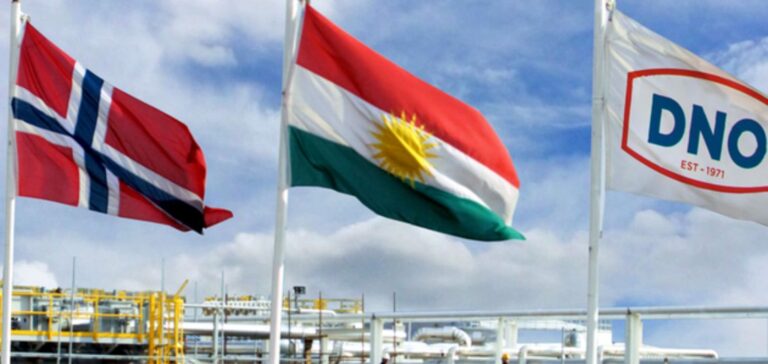Norwegian oil group DNO, one of the leading oil producers in Iraqi Kurdistan, announced on Thursday that it had restarted production at one of its fields in the region, shut down in March due to the export freeze imposed by Turkey.
Tawke oil field: Export trends and impact of court rulings
The oil issue has long poisoned relations between the authorities in Baghdad, those in Iraqi Kurdistan, an autonomous region in the north of the country, and neighboring Turkey. The Tawke field resumed production last month and is now pumping an average of 40,000 barrels per day (bp/d), DNO said on the occasion of the presentation of its quarterly financial results.
In March, the company announced the planned shutdown of production at its Tawke and Peshkabir fields, which produced an average of 107,000 bp/d in 2022, or at the time a quarter of Iraqi Kurdistan’s crude exports. But after years of going it alone in exporting oil via Turkey, Iraqi Kurdistan had to bow to a ruling by the International Chamber of Commerce arbitration tribunal in Paris in Baghdad’s favor at the end of March regarding the management of this oil.
Following this verdict, Turkey stopped the transit of Kurdish oil through its territory via pipeline. Half of the oil produced on Tawke is now delivered to the Kurdistan Regional Government and the other half to local trading companies and shipped by tanker, DNO explained. Sales prices are variable, and on average half what they were before the deposit was shut down, “but payments are made promptly and directly to DNO”, the group also claimed. The Peshkabir deposit remains closed. Iraq, the second-largest OPEC country, exports an average of 3.3 million barrels of crude oil a day.





















